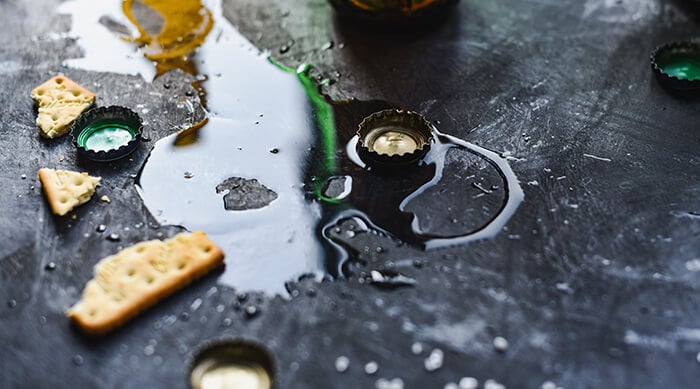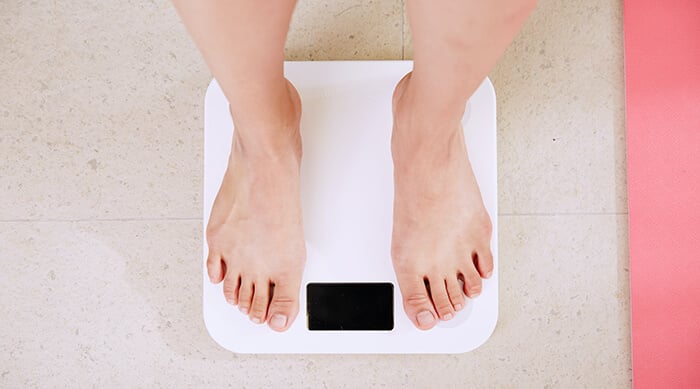Ibuprofen is an over-the-counter non-steroidal anti-inflammatory drug (NSAID) sold under brand names such as Advil and Motrin. Taking ibuprofen and drinking wine can potentially be a hazardous mix.
Both alcohol and any non-steroidal anti-inflammatory drug (NSAID), including ibuprofen, can irritate your stomach and digestive tract. Your own health and risk factors play a role in the dangers of consuming this combination.
Usually, just a small amount of alcohol post-ibuprofen intake is ok. The more alcohol you’ve consumed, the greater the associated risks become.
Table of Contents
Can I have a glass of wine if I took ibuprofen?
Can I have a glass of wine if I took ibuprofen?
Having a glass of wine after taking ibuprofen will not cause significant harm to most individuals, but we don’t recommend it. Forgetting you had a glass of wine with dinner and then taking a pill before bed happens — it’s just best not to make it a regular occurrence.
If you’re going to have a drink after taking ibuprofen, you should be aware of the potential adverse side effects. Everyone's body reacts differently.
Factors like overall health, age, existing health conditions, and the amount of alcohol and ibuprofen consumed can significantly affect how the body will respond to the combo.
How much wine can you drink with ibuprofen? Drinking a single glass of wine while taking ibuprofen is generally ok. Large amounts of alcohol consumption or mixing ibuprofen and alcohol should be avoided. If you want a second drink, make it a can of Surely’s Bubbly Red.
What is ibuprofen?
Ibuprofen is a common painkiller to reduce fevers, pain, and swelling. It works by lowering compounds that stimulate pain and swelling in the body. Ibuprofen blocks the enzyme responsible for creating those compounds, called prostaglandins, resulting in reduced pain.
The drug is generally safe, but the side effects of ibuprofen by itself include bloating, heartburn, abdominal pain, constipation, and vomiting. In rare cases, serious side effects, such as shortness of breath and sudden fainting, can occur.
What is the difference between ibuprofen and Tylenol? The difference between ibuprofen and Tylenol, a brand of acetaminophen, is that ibuprofen has anti-inflammatory effects, whereas acetaminophen is a fever and pain reliever.
The Risks of Taking Ibuprofen and Drinking Alcohol
All pain medications, from acetaminophen to naproxen, and even Midol, which contains ibuprofen, should not be taken with alcohol. The risks associated with combining ibuprofen and alcohol increase with the quantities consumed.
While a small amount of alcohol may not cause severe side effects, consistently drinking high amounts of alcohol while taking higher doses of ibuprofen can.
What are the risks of taking ibuprofen with wine? The risks of taking ibuprofen with wine include stomach problems, kidney and liver damage, heart issues, and drowsiness.
1. Stomach Problems
Both alcohol and ibuprofen can cause stomach pain. Together, they can irritate the digestive tract, increasing the risk of gastrointestinal bleeding and peptic ulcers.
Older adults are more prone to getting stomach ulcers, so avoid mixing these two substances if you’re over 65.
Severe symptoms such as an upset stomach, bleeding, vomiting, or defecating blood can occur. These risks are usually associated with long-term use of ibuprofen or high doses.
Seek medical attention immediately if you experience black, tarry stools or vomit that resembles coffee grounds. Both of these are symptoms of GI bleeding.
2. Kidney Damage
Separately, both regular alcohol consumption and high ibuprofen doses may lead to chronic kidney disease. Combining ibuprofen with alcohol is a double whammy, amplifying the negative impact on kidney function. This can lead to serious health conditions and kidney problems.
3. Heart Problems
Alcohol use has been linked to disrupting the body's ability to maintain healthy blood pressure levels. At the same time, pain management drugs like ibuprofen are linked to an increased risk of heart attacks and strokes.
Slurred speech, chest pains, or weakness on one side of the body after mixing ibuprofen and a few glasses of wine are a medical emergency. Don’t wait to seek treatment.
4. Liver Damage
Ibuprofen alone is not generally associated with long-term liver problems, but combining ibuprofen and alcohol can damage the liver. Each time your liver has to filter alcohol, some of your liver cells die.
Binge drinking or frequently drinking more than 2 drinks in an evening, are known causes of liver disease.
5. Drowsiness
Both ibuprofen and alcohol can cause drowsiness and reduced reaction times. Taking ibuprofen with wine can significantly impair your responsiveness and overall mental health.
This drowsiness can increase the risk of accidents or injuries, particularly if you're driving or operating machinery.
Read Next: The Dos and Don'ts of Mixing Wine and Tylenol
Taking Medication Safely
Taking medication like ibuprofen safely will mitigate health risks you might otherwise experience. You should always consult a medical provider if you have questions or concerns about drug interactions.
Be mindful of your after-work happy hours and social plans when you have to take medications. Consider drinking mindfully or ordering a non-alcoholic option.
Although it may be tempting to reach for a glass of wine to relax when you have a headache, or to grab a couple of ibuprofen to ease a hangover, proceed with caution. Mixing ibuprofen and alcohol increases the risk of stomach ulcers, kidney damage, gastritis, and other health issues.
How long after drinking alcohol can I take ibuprofen? After drinking, you should wait 24-25 hours to take ibuprofen.Alcohol stays in your body this long, with one drink reaching peak levels in your bloodstream in 60-90 minutes before the body starts breaking it down.
Should I drink wine if I take ibuprofen? Drinking a small glass of wine is ok, but you should wait 10 hours after a dose of ibuprofen to have more alcohol. The time depends on your body's ability to process the ibuprofen.
A good rule of thumb is to wait at least a day after drinking before taking ibuprofen. If you've consumed alcohol or have additional risk factors, you may want to wait 2-3 days.
Remember that ibuprofen is a common ingredient in many other medications, including those for headaches and colds. It's essential to read the labels of all your medications to avoid accidentally consuming high doses of ibuprofen.
When To See a Doctor
Self-medicating with over-the-counter drugs like ibuprofen is pretty common. However, misusing or overusing non-steroidal anti-inflammatory drugs (NSAIDs) isn’t a great idea, especially when you’re drinking alcohol.
If you need to take ibuprofen or other NSAIDs regularly for pain management, or if you're concerned about your alcohol use, talk to your healthcare provider. They can provide medical advice on safe pain relief methods and help you monitor anything going on with your health related to your need for ibuprofen or excessive drinking.
Remember, your health should be your top priority! Ibuprofen can relieve aches and pains, but taking it with alcohol can lead to unwanted and potentially severe side effects.
If you think you may be struggling with substance abuse, the National Institute on Alcohol Abuse and Alcoholism has resources and treatment options to help you on your road to recovery.
Alternatives For Pain Relief
While ibuprofen is a highly effective pain reliever, it's not the only option available, especially if you're concerned about its side effects or interactions with alcohol. There are alternatives for managing pain!
Pain relief methods that don't involve medication include techniques such as physiotherapy, yoga, mindfulness meditation, and regular exercise. Some foods, such as fatty fish, berries, avocados, and green tea, have anti-inflammatory properties that can help mitigate pain. Other foods, like those high in sugars and trans fats, can cause inflammation to flair up.
If your pain isn’t subsiding and you need to reach for an NSAID, grab a bottle of Surely’s non-alcoholic wine! Our delicious wines pack all the flavors without the icky side effects of alcohol. You can still have your rosé and ibuprofen to take the pain away!




